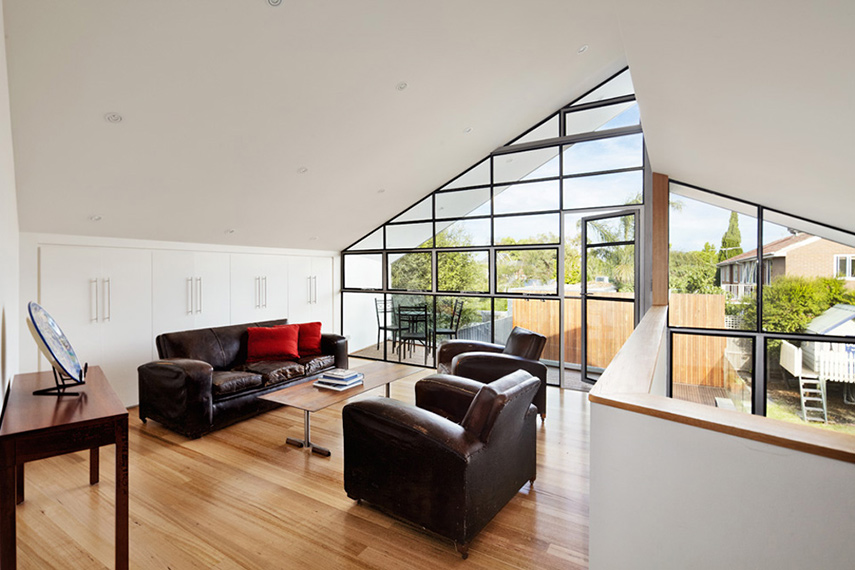Factors to Consider When Choosing Glass for Your Home
Windows are fundamental to good home design as they have a lasting impact on the quality of life in the home.
Careful consideration of the size, type and placement of windows is required to ensure a comfortable living environment. There are two sets of factors you should consider when choosing the right glass for your home. The basic factors are climate, location and the orientation of your windows. The four secondary factors which determine the right glass for your home are insulation, heat loss and heat gain, ventilation and acoustics.
Location
If your home is located in areas that experience colder, longer winters, you need glass that offers better insulation than the ordinary glass. Ordinary glass lets your home’s heat leak out during cold weather. The best way to insulate your windows is to choose low emissivity (Low-E) glass. This type of glass acts like insulation and significantly improves the energy efficiency of your home. Double-glazed windows also offer improved insulation as well as improved noise reduction. For homes located in warmer climate zones it is better to choose glass that absorbs and reflects the heat such as toned (tinted) glass or toned Low-E.
Orientation
Understanding the orientation of your windows and how much sun they get throughout different seasons will influence what type of glass you need. To get the best results from windows consider the following guidelines:
- Achieving a thermally efficient house can be helped by orientating the home’s glass to the north where possible, with eaves or shading to keep the summer sun off the glass
- Northerly facing sunrooms capture the best of the sunny aspect without the harshness of the afternoon heat
- Most bedrooms should get morning sun; therefore a north-east position would be a good option
- The westerly sun as it sets is the most severe in summer and so using a low-E coated glass with a tint in the glass, which makes it appear slightly darker will significantly help keep out that uncomfortable sun load.
If you have an existing home or a block that won’t accommodate a northerly orientation, you can still use different types of glass to help manage sun load, noise, privacy etc.
Site and surrounding area
Glass selection will also depend on the site of your home. For example, if you live in a high density urban area you may need an acoustic noise-reducing glass like Viridian’s ComfortHush™ to help reduce unwanted noise. Some homeowners may also face privacy issues, in which case you can consider a product like Viridian’s ComfortPlus Translucent™ a glass that allows natural light to enter the home whilst providing privacy at the same time. For anyone living in bushfire prone areas, it is important to ensure the glass and windows you use meet the Bushfire Attack Level (BAL) standards, such as Viridian’s PyroGuard 40™, a bushfire resistant glass that can be used in buildings in bushfire attack levels up to and including BAL 40. This glass has an ultra- thin transparent layer which helps protect the interior of a building by minimising the flow of radiated heat through the windows to provide greater protection during bushfires.
The importance of energy efficient glass for Australian homes
Put simply – no modern home should be built with anything less than a Low-E glass and preferably with double glazing. The increasing performance requirements associated with building and renovating means there is a growing demand for energy efficient glass. Homeowners are also becoming increasingly aware of the impact energy efficient glass can have on the comfort levels and living costs of their home. Ordinary windows are an energy leak. A typical, adequately-insulated building that uses ordinary glass can lose up to 49% of heat through the windows in winter. The same windows allow up to 87% of solar heat gain during summer. This is where energy efficient glass such as Viridian’s SmartGlass™ comes into play. Viridian’s SmartGlass works like wall and ceiling insulation, protecting the home from extremes of heat and cold. It offers greater insulation performance, 39% better than ordinary glass, combined with a choice of four levels of solar protection. As it is single glazed it can fit in most standard window frames and whilst it has the same thickness as ordinary glass, its special durable Low-E coating improves its insulation significantly over that of ordinary glass.
Viridian’s SmartGlass™
- Viridian SmartGlass™ range offers great insulation performance, 39% better than ordinary glass
- A typical, adequately-insulated building that uses ordinary glass can lose up to 49% of heat through the windows in winter. The same windows allow up to 87% of solar heat gain during summer
- Viridian SmartGlass™ can offer up to 25% savings on heating and cooling bills (source SmartGlass™ Website)
- SmartGlass™ is so advanced it can help homes achieve up to an extra Star Rating in energy efficiency when compared with ordinary glass (source SmartGlass™ Website)
The Living Space is brought to you by Viridian New World Glass.
